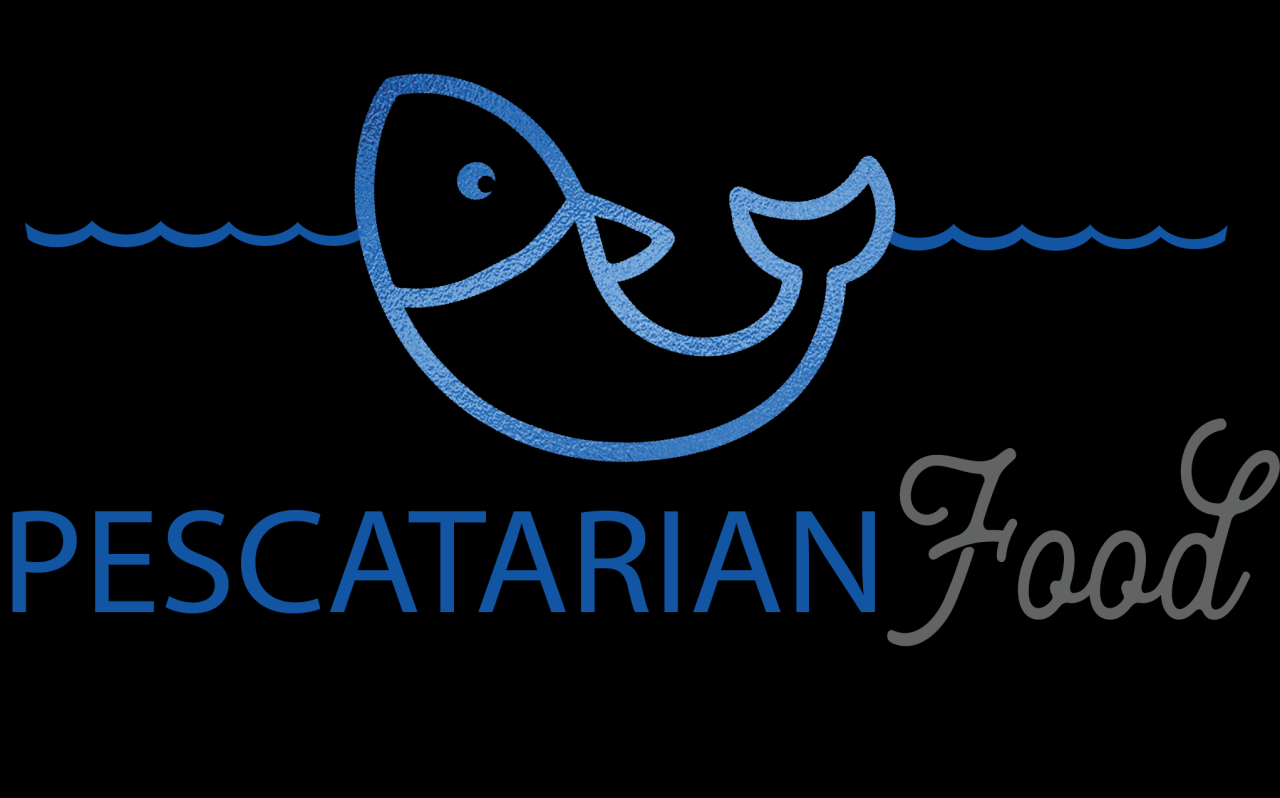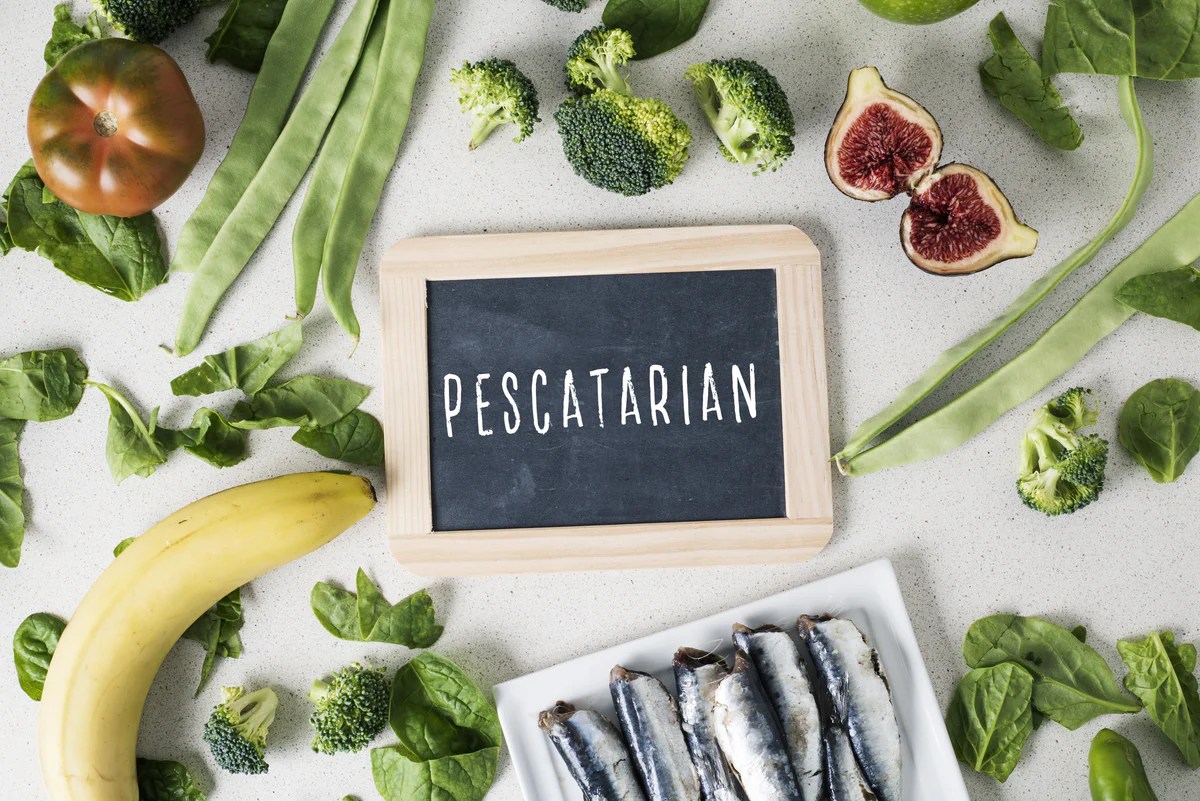Someone who only eats fish – Embark on a culinary adventure with the pescatarian diet, where the delights of the sea take center stage. Join us as we delve into the world of those who savor the ocean’s bounty, exploring its nutritional wonders, health implications, and ethical considerations.
Prepare to be captivated by the pescatarian lifestyle, where every meal becomes a tribute to the wonders of the aquatic realm.
From the depths of the ocean to your plate, the pescatarian diet offers a tantalizing array of flavors and textures. Whether you’re a seasoned seafood enthusiast or curious about exploring the culinary treasures of the sea, this guide will provide you with all the essential knowledge and inspiration you need to embrace the pescatarian lifestyle.
Nutritional Considerations: Someone Who Only Eats Fish
Adopting a fish-only diet requires careful attention to nutritional intake. While fish offers an array of essential nutrients, it also poses potential risks that need to be addressed.
Fish is a rich source of high-quality protein, omega-3 fatty acids, and essential vitamins and minerals, including vitamin D, selenium, and iodine. These nutrients play vital roles in maintaining cardiovascular health, brain function, and overall well-being.
If you’re a pescatarian, you know that getting enough protein can be a challenge. But there are plenty of delicious and nutritious sources of protein available to you. Some of the best sources of protein for pescatarians include fish , shellfish , and eggs . These foods are all packed with protein, and they’re also a good source of other essential nutrients, like omega-3 fatty acids and vitamin D.
Potential Benefits
- Reduced risk of heart disease: Omega-3 fatty acids have been shown to lower blood pressure, reduce inflammation, and improve cholesterol levels.
- Improved brain function: Omega-3 fatty acids are essential for cognitive development and function, supporting memory, learning, and mood regulation.
- Stronger bones and joints: Vitamin D, found in fatty fish, helps the body absorb calcium, promoting bone health and reducing the risk of osteoporosis.
Potential Risks
- Mercury exposure: Some fish, such as tuna and swordfish, contain high levels of mercury, a toxic metal that can accumulate in the body and damage the nervous system.
- Iodine deficiency: Fish is not a good source of iodine, an essential nutrient for thyroid hormone production. A deficiency can lead to hypothyroidism, a condition that can cause fatigue, weight gain, and impaired cognitive function.
- Vitamin B12 deficiency: Fish does not contain vitamin B12, which is essential for red blood cell production and nervous system function. Vegans and vegetarians who follow a fish-only diet may need to supplement with vitamin B12.
Ensuring a Balanced Intake
To ensure a balanced intake of essential nutrients on a fish-only diet, it is important to:
- Variety: Consume a variety of fish species to reduce the risk of mercury exposure and ensure a wide range of nutrients.
- Limit high-mercury fish: Limit consumption of fish high in mercury, such as tuna and swordfish, to no more than once or twice a month.
- Iodine supplementation: Consider supplementing with iodine to prevent deficiency, especially if following a strict fish-only diet.
- Vitamin B12 supplementation: Supplement with vitamin B12 to prevent deficiency, as fish does not contain this nutrient.
Health Implications

Embarking on a fish-only diet can have a profound impact on one’s health. While fish is undoubtedly a nutritious food, relying solely on it may lead to both positive and negative consequences.
Let’s delve into the potential health implications of adopting a fish-only dietary pattern.
Cardiovascular Health
Consuming fish regularly has been associated with improved cardiovascular health. Fish is a rich source of omega-3 fatty acids, which have anti-inflammatory properties and may help lower blood pressure, reduce the risk of heart attack and stroke, and improve cholesterol levels.
Pescatarians, rejoice! While you may not eat meat, you can still get your daily dose of protein from a variety of sources. Fish is a great option, of course, but there are also plenty of plant-based sources that can help you meet your protein needs.
Beans, lentils, and tofu are all excellent sources of protein, and they’re also packed with fiber and other nutrients. If you’re looking for a more complete source of protein, try seafood like shrimp, crab, or lobster.
Weight Management
Fish is generally a low-calorie, high-protein food. Including fish in a weight management plan can promote satiety, boost metabolism, and aid in weight loss.
Overall Well-being
A fish-only diet may provide adequate amounts of essential nutrients, such as protein, vitamins, and minerals. However, it may be deficient in certain nutrients, such as vitamin B12, iron, and calcium. It’s crucial to consult a healthcare professional or registered dietitian to ensure a balanced and nutritious diet that meets individual needs.
Specific Health Conditions
In some cases, a fish-only diet may influence specific health conditions:
- Allergies:Some individuals may be allergic to fish, which can lead to adverse reactions ranging from mild discomfort to life-threatening anaphylaxis.
- Mercury Exposure:Certain types of fish, such as tuna and swordfish, contain higher levels of mercury. Consuming large amounts of these fish may increase mercury levels in the body, which can harm the nervous system.
- Iodine Deficiency:Fish is a good source of iodine, but a fish-only diet may not provide sufficient amounts. Iodine is essential for thyroid function.
Ethical and Environmental Concerns

A fish-only diet raises ethical and environmental concerns that warrant consideration. From animal welfare to the sustainability of marine ecosystems, it’s crucial to examine the impact of our dietary choices on the planet and its inhabitants.
Impact on Marine Ecosystems
- Bycatch:Fishing practices often result in unintended capture of non-target species, known as bycatch. This can disrupt marine ecosystems and threaten endangered species.
- Habitat Destruction:Fishing gear can damage sensitive marine habitats, such as coral reefs, which are vital for biodiversity and ecosystem health.
- Overfishing:Excessive fishing can deplete fish populations, leading to imbalances in marine ecosystems and threatening the livelihoods of coastal communities.
Animal Welfare
- Pain and Suffering:Fish experience pain and distress when caught and handled. Methods like gillnetting can cause suffocation and prolonged suffering.
- Crowded Conditions:Farmed fish are often kept in overcrowded and unsanitary conditions, leading to disease, stress, and poor welfare.
- Artificial Environments:Fish in aquaculture facilities are raised in artificial environments that may not meet their natural needs and behaviors.
Environmental Sustainability
- Greenhouse Gas Emissions:Fishing vessels and fish farms contribute to greenhouse gas emissions through fuel consumption and energy use.
- Water Pollution:Aquaculture can generate waste and chemicals that pollute waterways, harming marine life and ecosystems.
- Limited Resources:Fish stocks are finite, and a fish-only diet puts pressure on these resources, potentially leading to their depletion.
Meal Planning and Recipes
Embracing a fish-only diet necessitates meticulous meal planning to guarantee nutritional adequacy. This section provides a sample meal plan and a collection of delectable recipes to assist you in navigating this dietary choice.
Sample Meal Plan, Someone who only eats fish
The following meal plan offers a well-rounded nutritional profile for a fish-only diet:
- Breakfast:Oatmeal with berries and nuts, topped with grilled salmon
- Lunch:Tuna salad sandwich on whole-wheat bread with a side of mixed greens
- Dinner:Baked tilapia with roasted vegetables and brown rice
- Snacks:Greek yogurt with fruit, trail mix with nuts and seeds, hard-boiled eggs
Recipes
Explore a variety of recipes that cater to a fish-only diet, ensuring both taste and nutritional value:
- Appetizers:
- Ceviche with lime, cilantro, and red onion
- Smoked salmon bruschetta with capers and cream cheese
- Entrees:
- Pan-seared trout with lemon-herb butter
- Grilled salmon with roasted asparagus and quinoa
- Baked cod with a creamy dill sauce
- Desserts:
- Chia seed pudding with berries and coconut milk
- Fruit salad with grilled pineapple and mango
Cultural and Social Aspects
A fish-only diet has various cultural and social implications, influenced by historical, religious, and societal factors.
Historical and Religious Significance
Fish has held cultural and religious significance throughout history. In many cultures, fish is associated with fertility, abundance, and wisdom. In some religions, such as Christianity, fish is a symbol of Jesus Christ and is often consumed on religious holidays.
Social Stigma or Acceptance
The social acceptance of a fish-only diet varies depending on cultural context. In some communities, it may be viewed as a healthy and sustainable choice, while in others, it may be met with skepticism or disapproval. Social stigma associated with a fish-only diet can arise from cultural norms, dietary preferences, and concerns about nutritional adequacy.
Practical Considerations
Embarking on a fish-only diet requires meticulous planning and preparation. Here’s a comprehensive guide to help you navigate the transition and maintain this dietary lifestyle.
To ensure the sustainability of your fish consumption, consider sourcing fish from local fisheries that adhere to responsible fishing practices. Explore online marketplaces or connect with local fishmongers who prioritize ethical sourcing and traceability.
Cooking Techniques for Fish-Only Diet
Cooking fish in a healthy and flavorful way is crucial. Experiment with various cooking methods such as grilling, baking, steaming, and poaching to retain nutrients and enhance taste.
- Grilling:Grilling fish over high heat imparts a smoky flavor and creates a crispy exterior. Use a grill pan or outdoor grill for optimal results.
- Baking:Baking fish in the oven allows for even cooking and retains moisture. Wrap the fish in foil or parchment paper to prevent drying.
- Steaming:Steaming fish preserves its delicate texture and nutrients. Use a steamer basket or a bamboo steamer over boiling water.
- Poaching:Poaching fish in a flavorful broth gently cooks the fish while infusing it with additional flavors.
Summary
As we bid farewell to our exploration of the pescatarian diet, let us remember the profound impact our food choices have on our health, the environment, and the creatures we share this planet with. May this journey inspire you to make conscious decisions about your饮食, embracing the bounty of the sea while fostering a harmonious relationship with our aquatic ecosystems.
Remember, the pescatarian diet is not merely a restrictive regimen but a gateway to a world of culinary delights and mindful living. As you continue your journey, may you find joy in every bite, knowing that you are nourishing your body, respecting the planet, and honoring the wonders of the ocean.
Common Queries
Is the pescatarian diet nutritionally complete?
Yes, with careful planning, a pescatarian diet can provide all the essential nutrients for good health. It is important to ensure adequate intake of protein, omega-3 fatty acids, vitamin B12, and iron.
Can the pescatarian diet help with weight loss?
Yes, the pescatarian diet can be an effective way to lose weight. Fish is a lean protein source that is low in calories and fat. Additionally, the diet encourages the consumption of fruits, vegetables, and whole grains, which are all filling and nutrient-rich.
Is the pescatarian diet sustainable?
The sustainability of the pescatarian diet depends on the types of fish consumed and the fishing practices used. Choosing fish that are sustainably sourced and avoiding overfished species can help minimize the environmental impact.